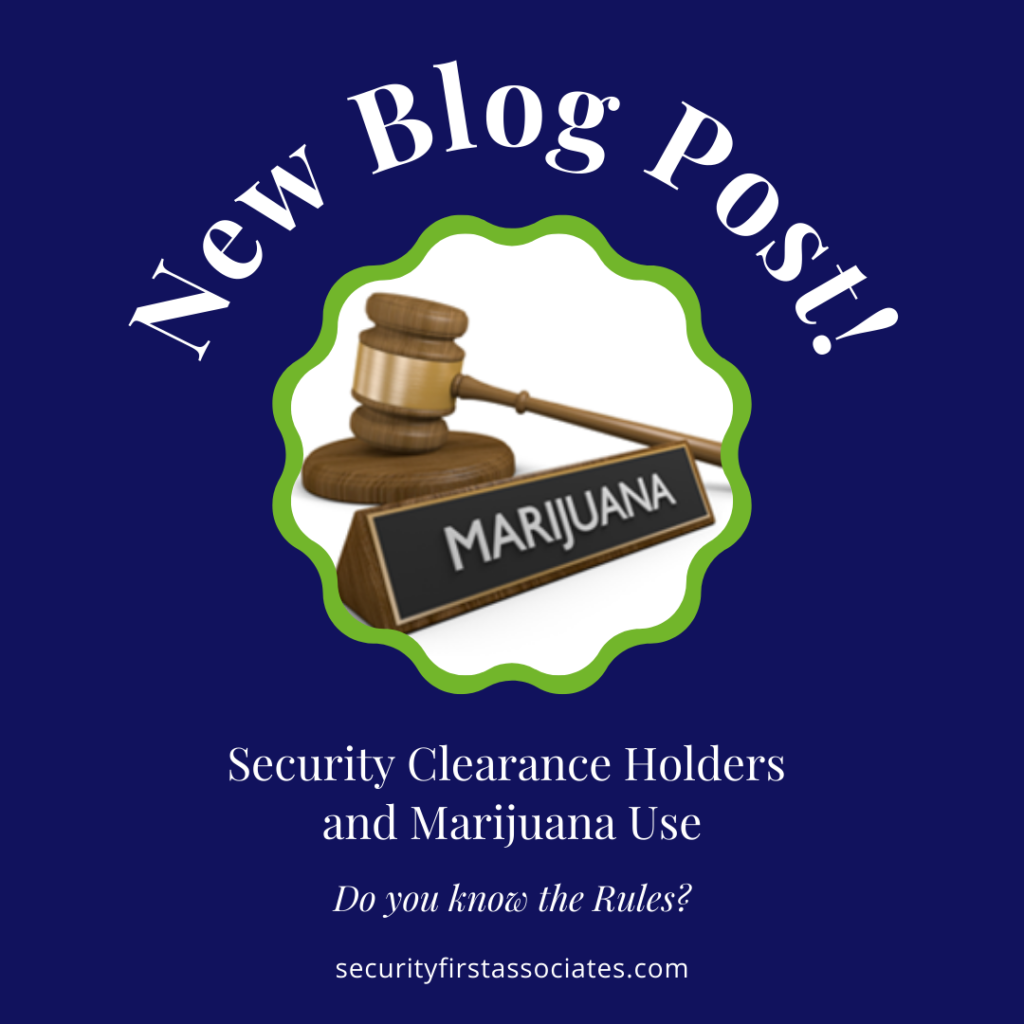Recreational marijuana might be legal in 18 states, Washington, D.C., and Guam, but you must have clarity on what is and isn’t allowed if you’re a security clearance holder. If you live in a state where it is legalized, is it a problem if you partake? Let’s be clear: If you currently hold or are seeking a security clearance position, recreational marijuana use is NOT allowed under federal guidelines.
1. State vs. Federal
Although many states have legalized marijuana, marijuana use remains illegal under federal criminal law as a Schedule I drug. The state and federal conflict has caused confusion and problems for security clearance applicants or holders. Security clearance holders and applicants frequently run into security clearance problems under Guideline H of the Security Clearance Guidelines (Security Executive Agent Directive 4) because they don’t realize the use of marijuana, even in a state that has legalized it, remains illegal under federal law.
2. Does Type or Frequency Matter?
Under current federal guidelines, the type of marijuana use makes no difference (e.g., candy form, chocolate, brownie, smoking). Individuals that have had security clearance problems can stem from eating just a single gummy candy that contained the active ingredients of marijuana. Others have engaged in light (or even one-time) usage of marijuana but still have had difficulties in overcoming the presumption that even minor use makes one ineligible to hold or maintain a security clearance. If the usage was a long time ago, this could significantly help mitigate a security concern, but the trickiest situations arise when marijuana usage has occurred within the past year.
3. Are There Exceptions?
Sometimes. The key is to show abstinence, changes in attitude, or changes in associations with friends that engage in drug use, and counseling, where needed. Certain criteria can alleviate security concerns for marijuana usage.
- The behavior happened so long ago, was so infrequent, or happened under such circumstances that it is unlikely to recur or does not cast doubt on the individual’s current reliability, trustworthiness, or good judgment. The individual acknowledges their drug involvement and substance misuse, provides evidence of actions taken to overcome this problem and has established a pattern of abstinence. This might include providing a signed statement of intent to abstain from all drug involvement and substance misuse, acknowledging that any future involvement or misuse is grounds for revocation of national security eligibility
- abuse of prescription drugs was after a severe or prolonged illness during which these drugs were prescribed, and abuse has since ended
- satisfactory completion of a prescribed drug treatment program, including, but not limited to, rehabilitation and aftercare requirements, without recurrence of abuse, and a favorable prognosis by a duly qualified medical professional
It is important not to take marijuana usage lightly regarding security clearance. Even minor usage can result in loss of security clearance. These guidelines may change as the government moves to a complete abstinence stance to an abuse threshold. In the future, marijuana usage will likely be handled on a case-by-case basis, but until then, refraining from any and all marijuana use is best.
Remember to Stay off the Grass ![]()
Leave a comment
We Live for them
Article written by: www.securityfirstassociates.com
